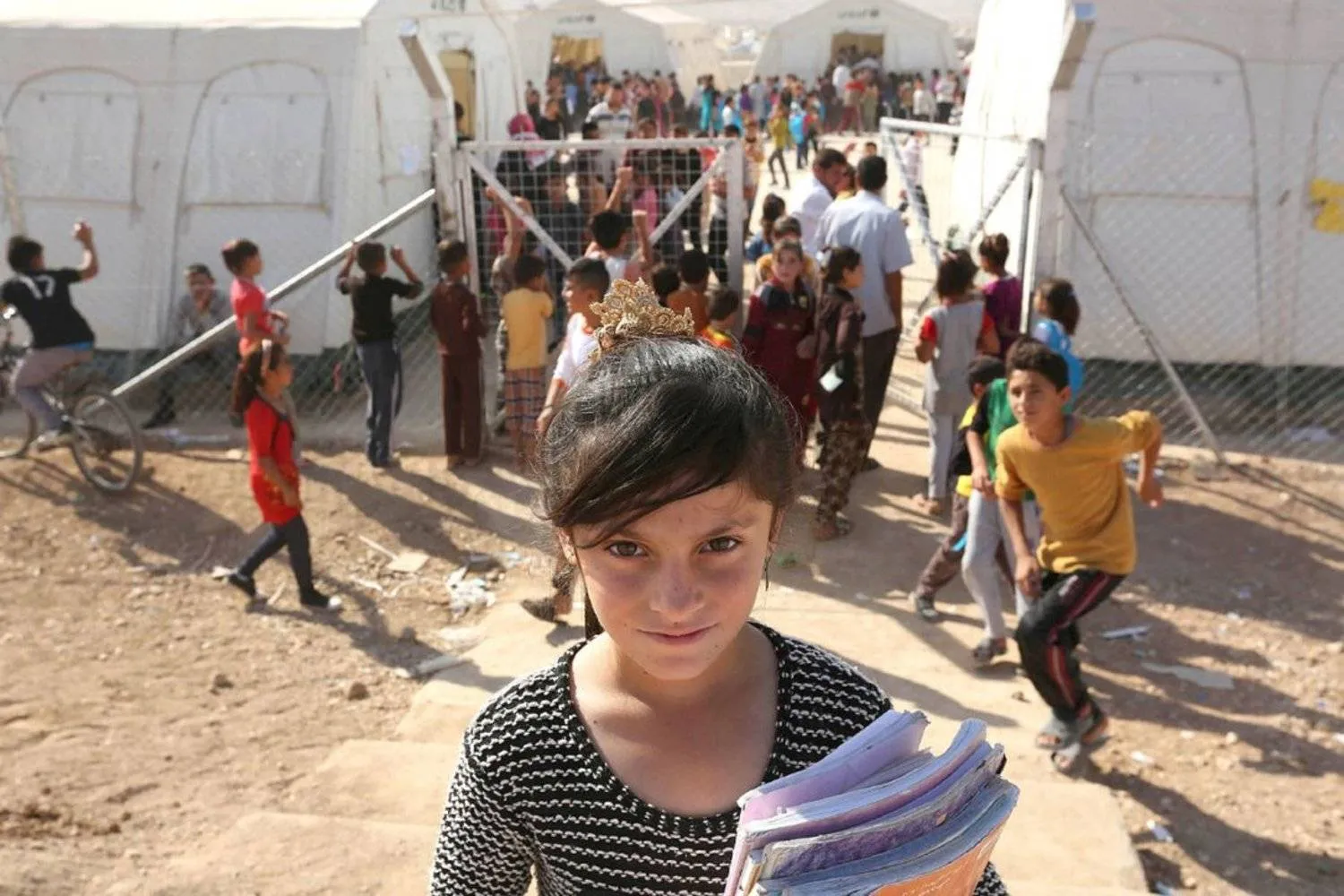The Iraqi government has postponed an order to clear out camps in the country’s semi-autonomous northern Kurdish region that house thousands of people who fled when the ISIS group seized their home areas a decade ago, officials said Tuesday.
Earlier this year, Baghdad ordered the camps to be closed by July 30 and offered payments of 4 million dinars (about $3,000) to occupants who leave.
Kurdish authorities refused to implement the closure order, saying that the areas the displaced people fled from — in particular, the remote district of Sinjar, the historic homeland of the Yazidi religious minority — are not suitable for returns.
A Kurdish official said that the regional government had reached an agreement with the office of Iraqi Prime Minister Mohammed Shia al-Sudani to postpone the closure until the end of the year, The AP reported.
The prime minister’s office has not released any public statement on the decision. However, a Baghdad government official confirmed that the closure had been postponed.
“A committee has been formed from the central government, the regional government and international organizations in order to assess the situation of the return of displaced persons and to provide the appropriate atmosphere for their return," he said. ”The return will be voluntary and not forced."
Both officials spoke on condition of anonymity because they were not authorized to share the information publicly.
As of April, only 43% of the more than 300,000 people displaced from Sinjar had returned, according to the International Organization for Migration.
IOM Chief of Mission Giorgi Gigauri said in a statement that returns have been hampered by “concerns over safety and security, the need for reconstruction including improved public service provision and availability of economic opportunities, widespread residential destruction, the need for accountability, redress and compensation, and the need for community reconciliation.”
In recent months, there has been an uptick in returns due to the camp closure order and compensation payments, but as of Tuesday, many residents of camps in the Dohuk area had not left.









